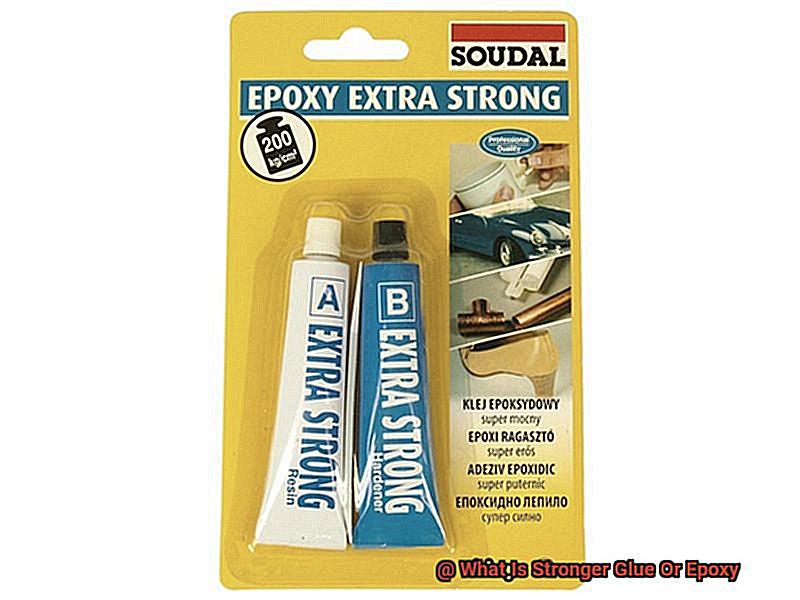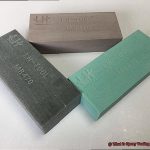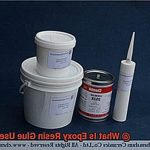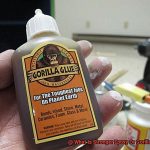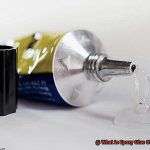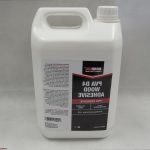Sick of flimsy adhesives that just can’t handle the pressure? Whether you’re tackling a DIY project or need to fix something in a jiffy, choosing the right adhesive is critical for a bond that lasts. And when it comes to strong adhesives, two contenders come to mind: glue and epoxy.
But which one packs the most punch? The glue vs. epoxy debate has raged on for ages, with each side insisting they’re the superior option. Some folks swear by the versatility and ease of use of glue, while others sing the praises of epoxy’s strength and durability.
In this blog post, we’ll delve into both options to determine which one truly reigns supreme in terms of sheer strength. We’ll explore how glue and epoxy differ, their intended purposes, and even take a look at various tests to see which performs better in different situations.
Whether you’re an avid DIYer or seasoned contractor, this article is your ultimate guide to selecting the ideal adhesive for your next project. So fasten your seatbelt and get ready to explore the captivating world of adhesives as we unveil which one emerges victorious: glue or epoxy.
Advantages of Glue
Contents
- 1 Advantages of Glue
- 2 Advantages of Epoxy
- 3 Factors to Consider When Choosing Between Glue or Epoxy
- 4 How to Choose the Right Glue for a Bonding Job
- 5 How to Choose the Right Epoxy for a Bonding Job
- 6 Different Types of Glues and their Uses
- 7 Different Types of Epoxies and their Uses
- 8 Common Applications for Glue vs Epoxy
- 9 Conclusion
When it comes to adhesive options, glue stands out as a versatile and reliable choice. From woodworking to model building to crafting, glue offers many advantages over other types of adhesives.
One of the primary advantages of glue is its ability to bond a wide range of materials. Whether you’re working with wood, metal, plastic, or fabric, there’s likely a type of glue that will work for your project. This versatility makes it a top choice for anyone looking for a multi-purpose adhesive.
In addition to its versatility, glue is also incredibly easy to use. Unlike other adhesives that require mixing or specialized equipment, most types of glue can be applied directly from the bottle or tube. This means that even if you have no prior experience using adhesives, you can confidently use glue for your project. Plus, with a quick drying time (ranging from seconds to hours depending on the type), your project can be completed in no time.
Glue is also an affordable and accessible option. With a vast array of types and brands available on the market today, finding the right adhesive for your specific needs is both easy and cost-effective. And because glue is so versatile, you can use it for multiple projects without breaking the bank.
While some people may assume that epoxy is always stronger than glue, this isn’t always true. In fact, in certain cases, glue can provide an even stronger bond than epoxy. For instance, when working with porous materials like wood, glue can penetrate deeper into the material and create a more durable bond.
Advantages of Epoxy
Epoxy is a powerhouse adhesive that has become increasingly popular in recent years, and for good reason. As an expert on the advantages of epoxy, I’ve compiled a comprehensive list of reasons why this adhesive is a game-changer in various applications.
Firstly, epoxy is renowned for its incredible strength. It can bond to a diverse range of materials, including wood, metal, glass, and plastic, making it an incredibly versatile adhesive. With its exceptional ability to resist water, heat, and chemicals, it’s the perfect choice for industrial or outdoor use where strength is critical.
Another advantage of epoxy is its durability. Once cured, epoxy forms an incredibly strong bond that can withstand heavy loads and extreme conditions. Its resilience makes it ideal for construction projects or automotive repairs where durability is paramount.
Epoxy also boasts excellent gap-filling properties. It can fill gaps or cracks in surfaces seamlessly and create a strong bond. This feature makes it an excellent choice for repairing damaged surfaces or filling gaps between two pieces of material.
Furthermore, the ease of use that comes with epoxy is unmatched. It can be applied using various methods such as pouring or brushing onto surfaces or using a syringe or other specialized tool. Once cured, epoxy can be sanded or painted to achieve a seamless finish.
Factors to Consider When Choosing Between Glue or Epoxy
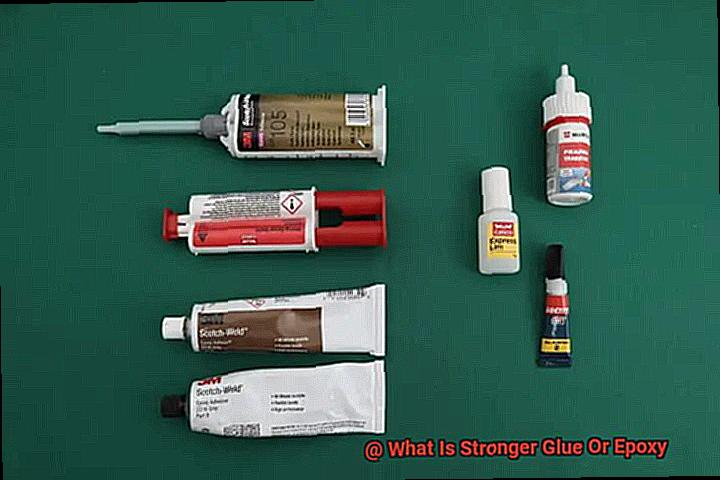
There are several factors to consider when selecting the right adhesive for your project.
First and foremost, it’s crucial to take into account the type of material you’ll be bonding. Different materials require specific types of adhesives, so it’s important to choose the right one for the job. For example, if you’re bonding wood, glue is your best bet, while epoxy is better suited for metal.
The strength and durability of the adhesive are also essential factors to consider. Epoxy is known for being incredibly strong and durable and is often used in industrial settings where a robust bond is necessary. However, there are high-strength glues available that can provide a similar level of durability.
Another important aspect to consider is the setting time and cure time of the adhesive. Glue usually has a shorter setting time and can be sanded or painted over once it dries. Conversely, epoxy has a longer cure time and may require additional curing time before sanding or painting can commence.
It’s also crucial to factor in the application method when selecting an adhesive. Glue is typically applied using a brush or nozzle, while epoxy requires mixing before being applied with a spatula or syringe.
Last but not least, the cost of the adhesive should be taken into consideration. Epoxy is generally more expensive than glue, but it may be worth the investment for projects that require a stronger bond.
How to Choose the Right Glue for a Bonding Job
Bonding materials together requires the right glue to achieve a strong and durable bond. With so many types of glue available, choosing the right one can be overwhelming. Here are five sub-sections to consider when choosing the right glue for your bonding job:
Material Type
The material being bonded is a critical factor in selecting the right glue. Metal bonding adhesives or epoxies are ideal for metal bonding jobs, while wood glues are best for wood bonding jobs. It’s essential to choose a glue that works best according to the material being bonded.
Strength and Durability
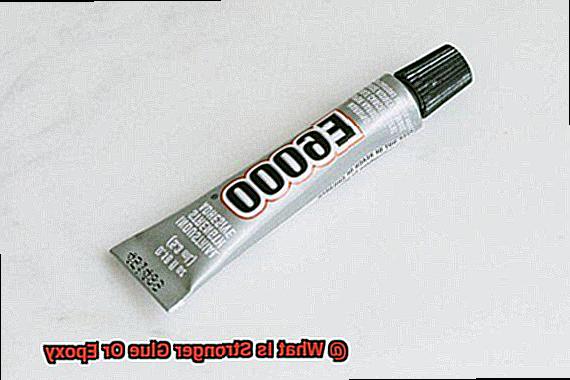
Another important factor to consider is how strong and durable the bond needs to be. If you need a strong and permanent bond, an epoxy or structural adhesive is a great choice. On the other hand, if a temporary bond is required, consider using a repositionable glue.
Application Method
The application method can significantly affect the strength and durability of the bond. Some glues come with brushes or applicators, while others come in spray cans or tubes with precision tips. Choose an application method that’s appropriate for your specific job to ensure the best possible outcome.
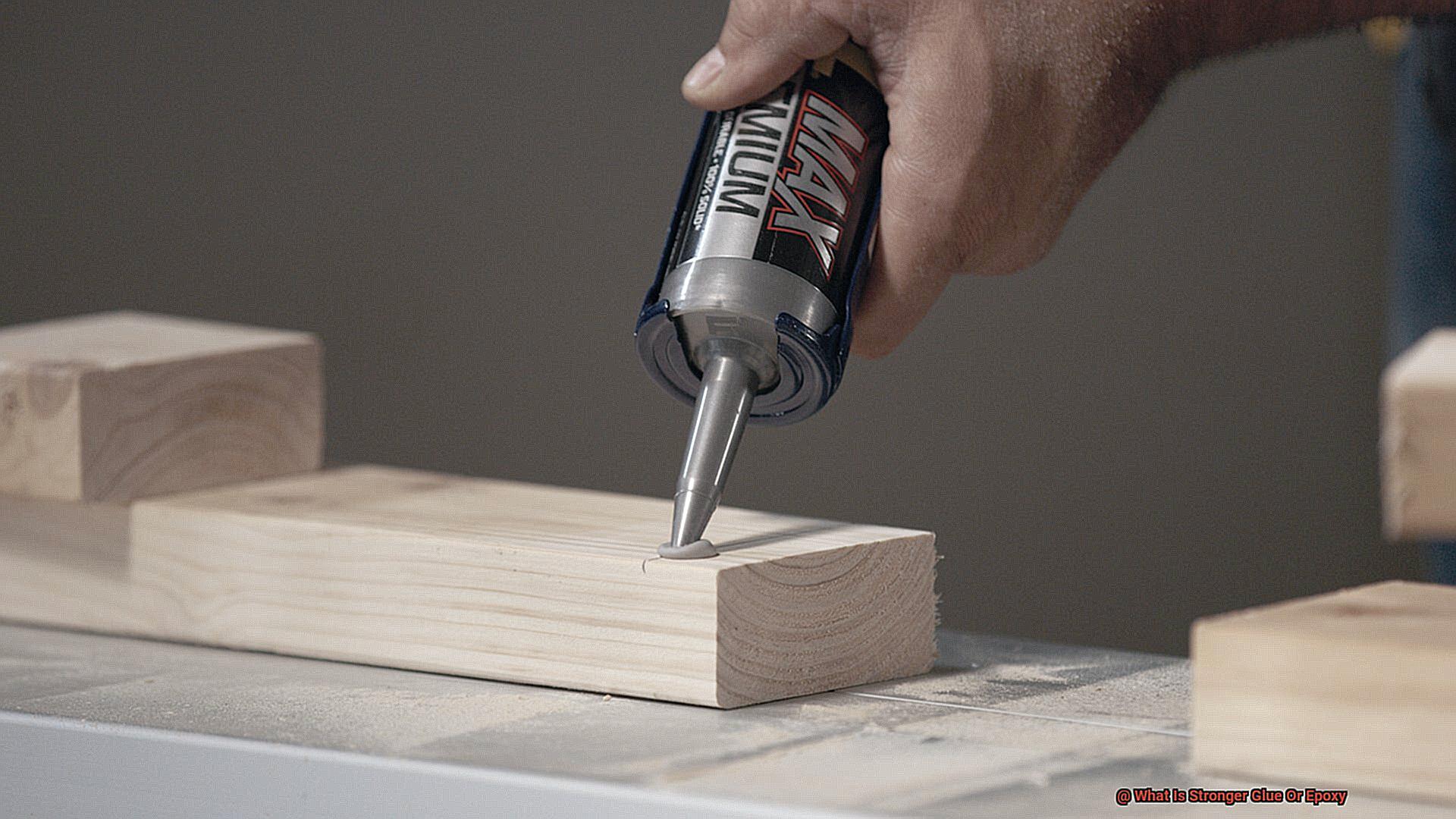
Glue Strength
The strength of the glue is an essential factor in determining whether it will work for your bonding job or not. Epoxies are generally stronger than traditional glues, but not all epoxies are created equal. It’s crucial to read the manufacturer’s instructions carefully and select an epoxy that’s specifically designed for your material.
Safety Precautions
When working with any type of glue, it’s crucial to follow proper safety precautions to avoid any accidents or injuries. This includes wearing gloves and eye protection, using in a well-ventilated area, and keeping the glue away from children and pets.
How to Choose the Right Epoxy for a Bonding Job
Here are five factors to consider:
- Purpose: The first thing to consider is the purpose of your bond. What type of materials are you bonding? Is it a high-stress application like metal or plastic, or low-stress like wood or ceramics? Choosing an epoxy formulated for your specific purpose ensures a strong bond.
- Adhesion: Not all epoxies adhere to every material. Some are designed for specific surfaces like metals or plastics, while others work better on wood or ceramics. Choosing the wrong epoxy can result in a weak bond or even failure.
- Cure Time: Setting time and cure time are important factors to consider. Setting time refers to how long it takes for the epoxy to become tacky and hold materials together, while cure time is how long it takes for the epoxy to reach its full strength. Some epoxies cure quickly, while others take several days to achieve maximum strength.
- Temperature and Chemical Resistance: Consider any environmental factors that may affect the bonding process, such as temperature or humidity. Some epoxies are designed to work better in certain environmental conditions than others. If your bond will be exposed to heat or harsh chemicals, choose an epoxy that is specifically designed to withstand those conditions.
- Strength Requirements: Lastly, consider how much strength your project requires. Some epoxies are formulated for high-stress applications, while others are better suited for low-stress projects. Choosing an epoxy with the appropriate strength rating is crucial for achieving a reliable and long-lasting bond.
Different Types of Glues and their Uses
Choosing the right glue for your project can be a daunting task. With so many types of adhesives available on the market, it’s important to understand their properties and uses. Here are five common types of glue and their applications:
White Glue
Also known as school glue or PVA glue, this water-based adhesive is ideal for woodworking and paper crafts. It dries clear, is easy to clean up with water, and is perfect for use on porous surfaces like paper, cardboard, and wood. However, it’s not recommended for structural applications as it’s not very strong.
Super Glue
This fast-drying adhesive, also known as cyanoacrylate glue, forms a strong bond between two non-porous surfaces like metal, plastic, and glass. It’s perfect for small repairs and projects that require a quick fix. But it may not be the best choice for porous surfaces as it may not form a strong bond.
Epoxy
If you need a strong and durable bond, epoxy is the way to go. This two-part adhesive consists of a resin and a hardener that create a chemical reaction forming a strong bond between two surfaces. It’s ideal for bonding metal, wood, plastic, and even concrete in structural applications.
Hot Glue
This fast-drying adhesive is melted with a hot glue gun and then applied to surfaces. It dries quickly and is ideal for bonding materials like fabric, paper, and plastic. However, it may not be as strong as other types of adhesives.
Contact Cement
This rubber-based adhesive creates an incredibly strong bond that’s perfect for bonding materials like leather and rubber. It’s great for projects that require a waterproof bond but requires careful handling as it can be difficult to remove once applied.
Different Types of Epoxies and their Uses
Epoxies are powerful adhesives that have become increasingly popular in various industries. They come in numerous types, each with unique properties and uses. The following sub-sections will explain the different types of epoxies and their respective applications, helping you choose the right adhesive for your project.
One-Part Epoxy:
Pre-mixed and ready to use straight out of the container, one-part epoxy is ideal for small-scale bonding applications. This type of epoxy is perfect for materials such as metal, plastic, and wood and is used in jewelry-making, electronics repair, and household repairs. One-part epoxy is easy to use, making it ideal for beginners.
Two-Part Epoxy:
Two-part epoxies are known for their high bonding strength and durability, making them ideal for heavy-duty applications such as automotive repair, construction, and marine applications. They come in a resin and hardener that need to be mixed together before use. Two-part epoxies can bond a wide range of materials, including metal, plastic, wood, and ceramics.
Structural Epoxy:
Structural epoxies are designed to provide long-lasting and durable bonds that can withstand heavy loads and stress. They are commonly used in construction and engineering applications such as bridge repair, concrete bonding, and metal fabrication. Structural epoxies offer high-strength bonding that stands up to environmental factors such as moisture, heat, and chemicals.
Marine Epoxy:
Marine epoxies are formulated to resist water and saltwater environments, making them ideal for boat repairs and other marine applications. They are also resistant to UV rays and weathering damage. Marine epoxies can bond materials like fiberglass, aluminum, steel, and wood.
Clear Epoxy:
Clear epoxies are designed to dry clear, making them ideal for applications where the bond needs to be invisible. They are commonly used in jewelry making, glass bonding, and other crafts. Clear epoxies are also ideal for applications where the color of the surface needs to show through.
Common Applications for Glue vs Epoxy
- Let’s start with glue – a versatile adhesive that comes in different forms, including liquid, gel, or spray. Glue can be water-based or solvent-based and is commonly used for lighter weight applications such as crafting, woodwork, or paper projects. If you’re working on a woodworking project, wood glue is specifically designed to bond wood fibers together and create a strong hold. And if you’re into arts and crafts, glue sticks or liquid glue are perfect for sealing envelopes or creating fun projects.
- Now let’s talk about epoxy – a two-part adhesive consisting of a resin and hardener. When mixed together, it creates a strong bond that is resistant to water and chemicals. Unlike glue, epoxy is used for heavy-duty applications such as automotive, construction, or marine projects. If you’re working on automotive repairs like fixing cracks in car bodies or repairing engine parts, then epoxy is your go-to adhesive. In marine repairs, epoxy can fix boat hulls or seal leaks. And in construction, it can anchor bolts into concrete or bond metal parts together.
But what makes epoxy stand out is its ability to fill gaps and repair damaged surfaces. This makes it ideal for fixing broken ceramics or even filling in cracks in concrete.
In summary, when deciding between using glue or epoxy, always consider the specific application and the strength required. While glue may be suitable for lighter weight projects such as woodwork or crafting, epoxy may be necessary for heavy-duty applications such as automotive or marine repairs.
Conclusion
In the never-ending battle between glue and epoxy, both adhesives have their strengths and weaknesses. Ultimately, the choice between them depends on your specific application and bonding requirements.
Glue is a budget-friendly option that can bond a wide variety of materials, making it perfect for DIY projects or crafting. It’s user-friendly and dries quickly, but may not be as durable as epoxy in heavy-duty applications.
Epoxy, on the other hand, is renowned for its exceptional strength and longevity. It can bond an extensive range of materials and withstand harsh environmental conditions such as heat and chemicals. Epoxy also has incredible gap-filling properties and can fix damaged surfaces with ease.
When deciding between glue or epoxy, it’s important to consider several factors such as material type, strength requirements, application method, cure time, temperature resistance, and cost. By comprehending the properties and uses of various types of glues and epoxies, you can choose the right adhesive for your project.
Whether you’re constructing a wooden masterpiece or mending your car’s engine parts, selecting the appropriate adhesive is crucial for achieving a robust and long-lasting bond.

